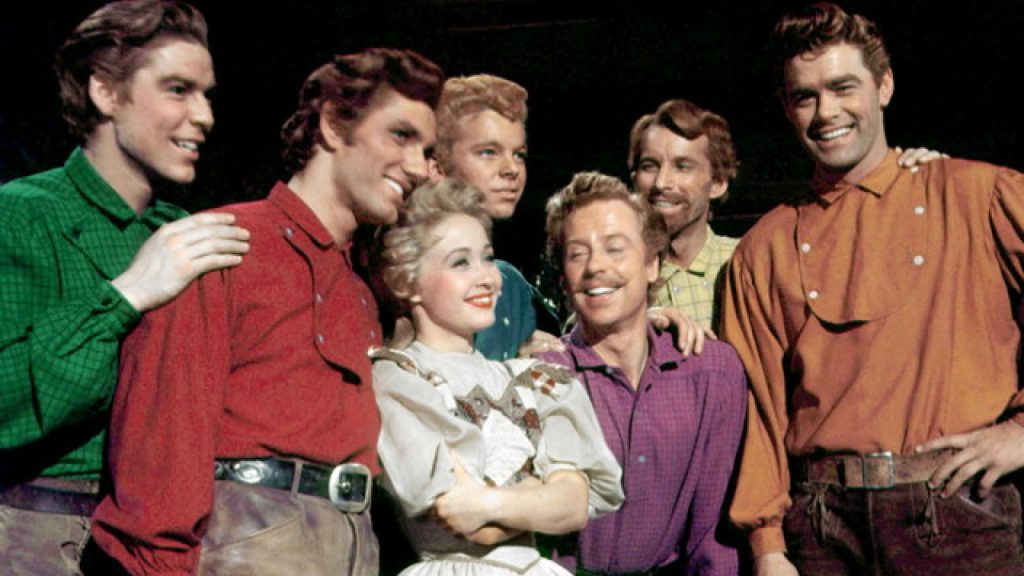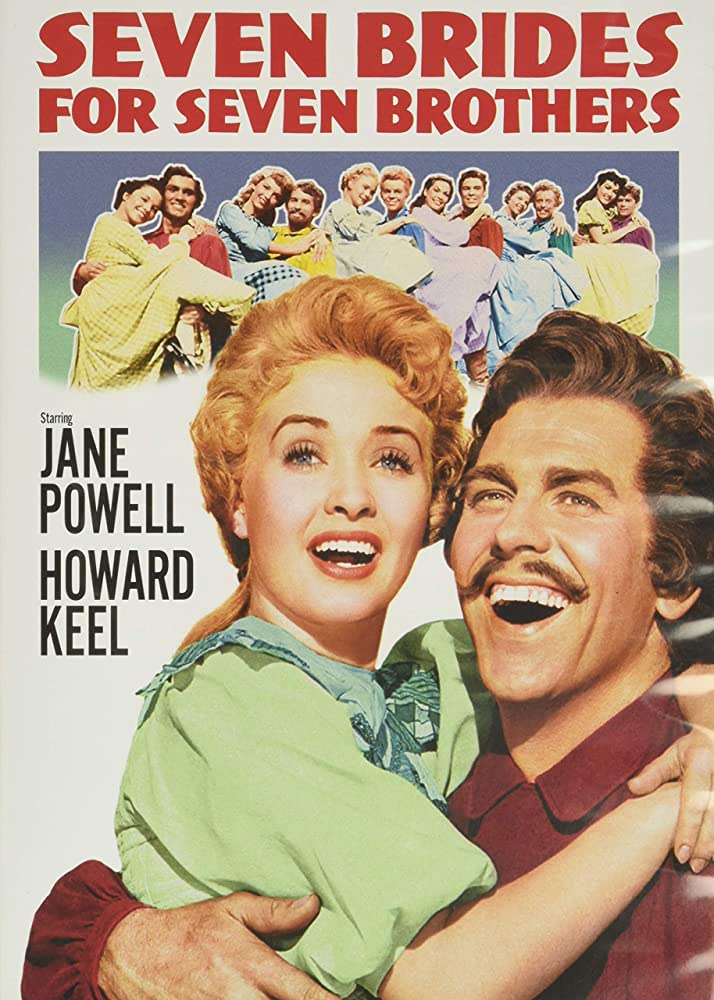Seven Brides for Seven Brothers, released in 1954, stars Howard Keel, Jane Powell, and Russ Tamblyn (who went on to star in the 1961 release of West Side Story.) This American Romantic Musical also features supporting actors/dancers Jeff Richards, Matt Mattox, Jacques D’Amboise, Virginia Gibson and Tommy Rall.
Set in 1850, Adam Pontipee (Keel), living a life of self-sufficiency in the backwoods of an Oregon Territory, heads into town to look for a bride. He meets Milly (Powell), the cook in the local boarding house where he stays, and proposes to her based on the quality of her cooking and diligence in completing her chores. She falls in love with him at first sight, and eagerly accepts his proposal of marriage. Following their marriage, they arrive at Adam’s cabin where she is surprised to discover his six ill-mannered, uncouth younger brothers all living with him. Believing that she would only be caring for him, she reproaches Adam for deceiving her, only wanting a servant, not a wife, and banishes him from her bed. The unmarried brothers decide that they too should find wives. Milly knows that the well-meaning but ignorant brothers would never find wives if they did not learn proper manners, cleanliness, and how to behave around women. Loving Adam, she embarks on an effort to teach them so that they might be able to woo and win wives of their own. Unfortunately, polite courtship efforts result in a barn-raising brawl, and the brothers are expelled from the town. Determined to keep his family together, Adam hatches a plan for the brothers to follow the example of the Sabine women by carrying off their future brides before winter sets in. More complications ensue, but eventually, due to the ingenuity of the women, a happy ending is achieved.
Adapted from the short story, “The Sobbin’ Women” by Stephen Vincent Benet, which was based on the Ancient Roman legend of the Rape of the Sabine Women, the film is an original musical made expressly for the big screen. The screenplay was written by Albert Hackett, Frances Goodrich, and Dorothy Kingsley. Directed by Stanley Donen, music and lyrics by Gene de Paul and Johnny Mercer with brilliant choreography by Michael Kidd, the barn raising scene is known as one of the most rousing dance numbers ever put on screen. The film received an Oscar for Best Scoring of a Musical Picture and was nominated for four others, including Best Picture and Best Cinematography.

